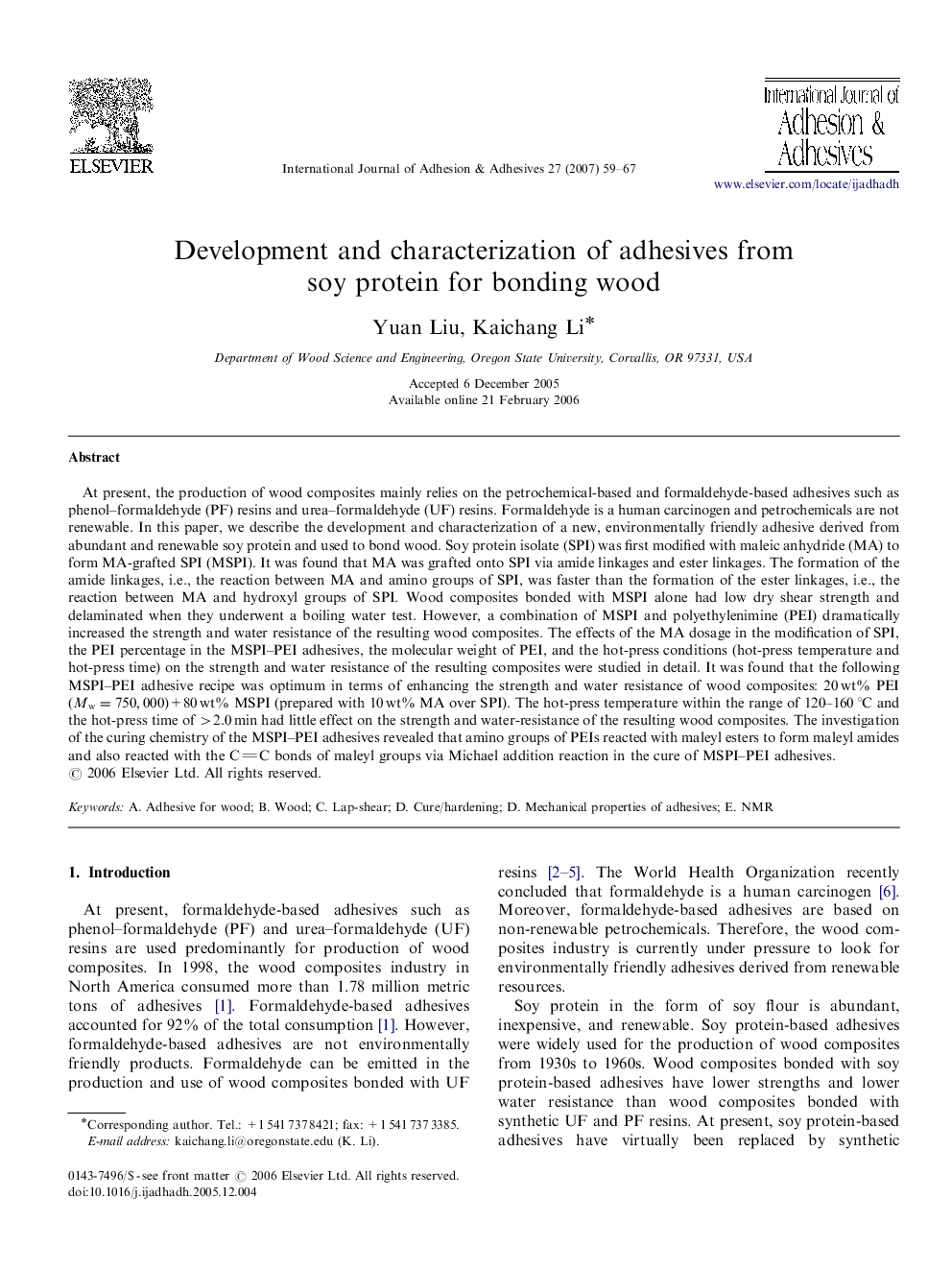| کد مقاله | کد نشریه | سال انتشار | مقاله انگلیسی | نسخه تمام متن |
|---|---|---|---|---|
| 776726 | 1463543 | 2007 | 9 صفحه PDF | دانلود رایگان |

At present, the production of wood composites mainly relies on the petrochemical-based and formaldehyde-based adhesives such as phenol–formaldehyde (PF) resins and urea–formaldehyde (UF) resins. Formaldehyde is a human carcinogen and petrochemicals are not renewable. In this paper, we describe the development and characterization of a new, environmentally friendly adhesive derived from abundant and renewable soy protein and used to bond wood. Soy protein isolate (SPI) was first modified with maleic anhydride (MA) to form MA-grafted SPI (MSPI). It was found that MA was grafted onto SPI via amide linkages and ester linkages. The formation of the amide linkages, i.e., the reaction between MA and amino groups of SPI, was faster than the formation of the ester linkages, i.e., the reaction between MA and hydroxyl groups of SPI. Wood composites bonded with MSPI alone had low dry shear strength and delaminated when they underwent a boiling water test. However, a combination of MSPI and polyethylenimine (PEI) dramatically increased the strength and water resistance of the resulting wood composites. The effects of the MA dosage in the modification of SPI, the PEI percentage in the MSPI–PEI adhesives, the molecular weight of PEI, and the hot-press conditions (hot-press temperature and hot-press time) on the strength and water resistance of the resulting composites were studied in detail. It was found that the following MSPI–PEI adhesive recipe was optimum in terms of enhancing the strength and water resistance of wood composites: 20 wt% PEI (Mw=750,000Mw=750,000)+80 wt% MSPI (prepared with 10 wt% MA over SPI). The hot-press temperature within the range of 120–160 °C and the hot-press time of >2.0 min had little effect on the strength and water-resistance of the resulting wood composites. The investigation of the curing chemistry of the MSPI–PEI adhesives revealed that amino groups of PEIs reacted with maleyl esters to form maleyl amides and also reacted with the CC bonds of maleyl groups via Michael addition reaction in the cure of MSPI–PEI adhesives.
Journal: International Journal of Adhesion and Adhesives - Volume 27, Issue 1, January 2007, Pages 59–67